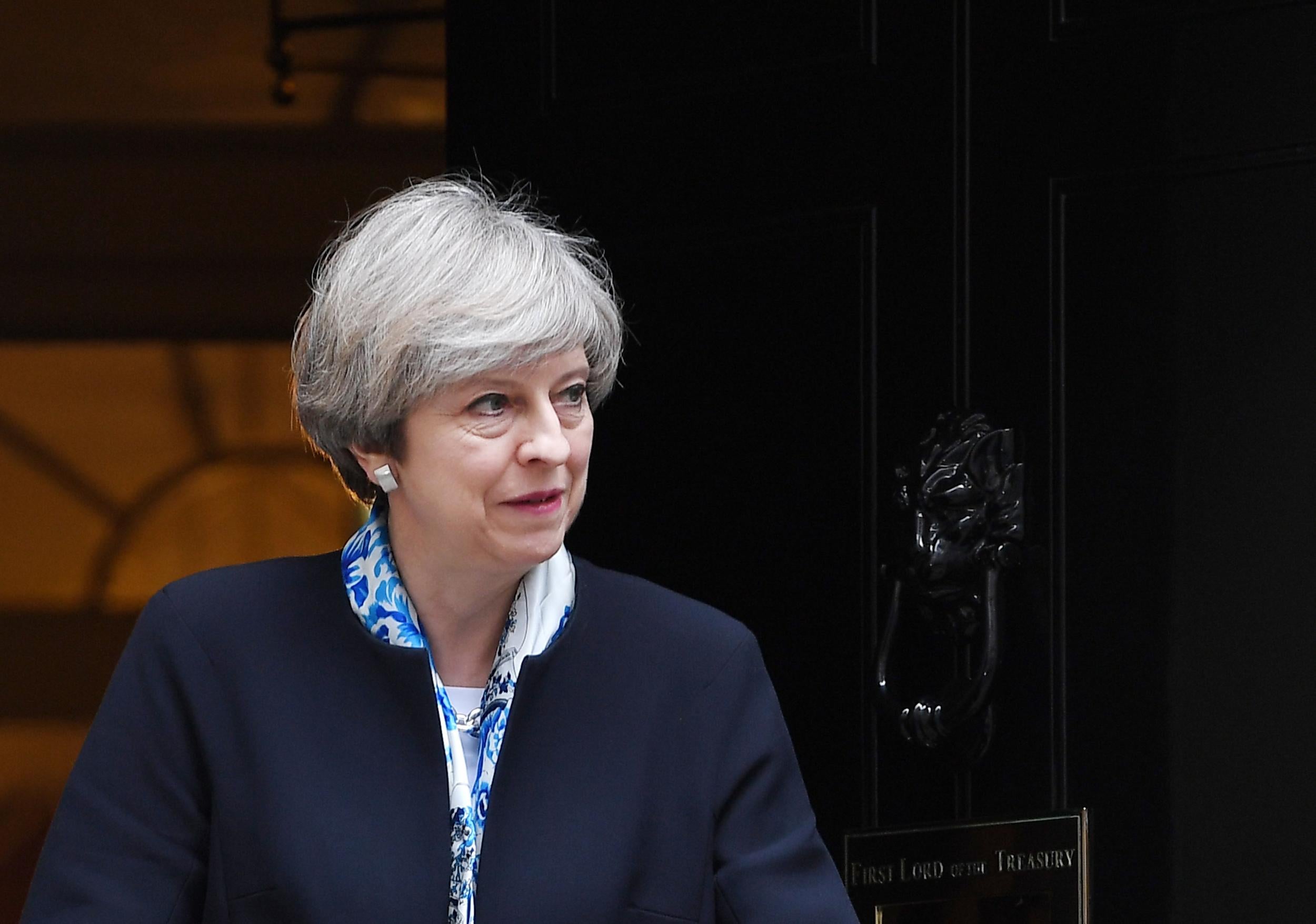Theresa May uses Easter message to suggest there is a ‘sense of coming together’ after Brexit divisions
Stressing the opportunities that stem from the UK's decision to leave the bloc, the Prime Minister said 'our shared values can – and must – bring us together'

Your support helps us to tell the story
From reproductive rights to climate change to Big Tech, The Independent is on the ground when the story is developing. Whether it's investigating the financials of Elon Musk's pro-Trump PAC or producing our latest documentary, 'The A Word', which shines a light on the American women fighting for reproductive rights, we know how important it is to parse out the facts from the messaging.
At such a critical moment in US history, we need reporters on the ground. Your donation allows us to keep sending journalists to speak to both sides of the story.
The Independent is trusted by Americans across the entire political spectrum. And unlike many other quality news outlets, we choose not to lock Americans out of our reporting and analysis with paywalls. We believe quality journalism should be available to everyone, paid for by those who can afford it.
Your support makes all the difference.Theresa May has used her Easter message to suggest there is a sense people in Britain are “coming together and uniting” after a period of intense debate and divisions over the EU referendum last year.
Stressing the opportunities that stem from the UK’s decision to leave the bloc, the Prime Minister said “our shared values can – and must – bring us together”.
She added: "For at heart, this country is one great union of people and nations with a proud history and a bright future.”
Ms May, the daughter of a vicar, who has often spoke about her religion, said “we should be confident about the role that Christianity has to play in the lives of people in our country”.
“We must continue to ensure that people feel able to speak about their faith, and that absolutely includes their faith in Christ,” she added.
“We must be mindful of Christians and religious minorities around the world who do not enjoy these same freedoms, but who practise their religion in secret and often in fear.
“And we must do more to stand up for the freedom of people of all religions to practice their beliefs openly and in peace and safety.”
Jeremy Corbyn, meanwhile, used his Easter message to call on people to use the principles at the heart of Christianity to overcome society’s problems. He said the religion's emphasis on peace could not have more urgency around the world than it does today.
“We hear painful stories every day, of homelessness, poverty or crisis in our health service – or across the world, of the devastating consequences of war and conflict, including millions forced to become refugees,” he said.
“It would be easy to retreat into our private lives because the challenges seem overwhelming, or allow ourselves to be divided and blame others.
“But we need to respond to these problems head on, through action and support for social justice, peace and reconciliation.
“Those principles are at the heart of Christianity. And Christians throughout the world will this weekend be remembering Jesus's example of love and sacrifice, and the Easter message of redemption and peace.
“At a time of growing conflict, that message of peace could not have more urgency throughout the world.
“I meet Christians, and others of all faiths and none, on a daily basis, who share and live those ideals: people who give their time for others, to run food banks, protect the vulnerable, look after the sick, the elderly and our young people.”
Liberal Democrat leader Tim Farron highlighted Mrs May’s intervention in the row over the National Trust and Cadbury Easter egg hunt in his message, while hitting out at nostalgia and nationalism.
He said: “I fear that what the Prime Minster and others were actually getting wound up about was the thought that the National Trust might have been airbrushing out something comfortable and traditional.
“And given that we are turning the clock back to the early 1970s with Brexit (or indeed the 1580s if we do end up declaring war on Spain), then nostalgia is most definitely the mood of the moment.”
He added: “Nostalgia and nationalism have become the fuel for an aggressive and irrational brand of politics that is the opposite of what liberals stand for.
“I don’t want the Christian message to be stolen by the nostalgic nationalists, just as no Liberal should seek to appropriate Jesus for their own purposes either.
“But the Easter message is one of internationalism, if you like – Jesus died for you no matter who you are or where you are from.
“And the Easter message is most definitely not about comfortable nostalgia, it is radical and disturbing.”
Join our commenting forum
Join thought-provoking conversations, follow other Independent readers and see their replies
Comments